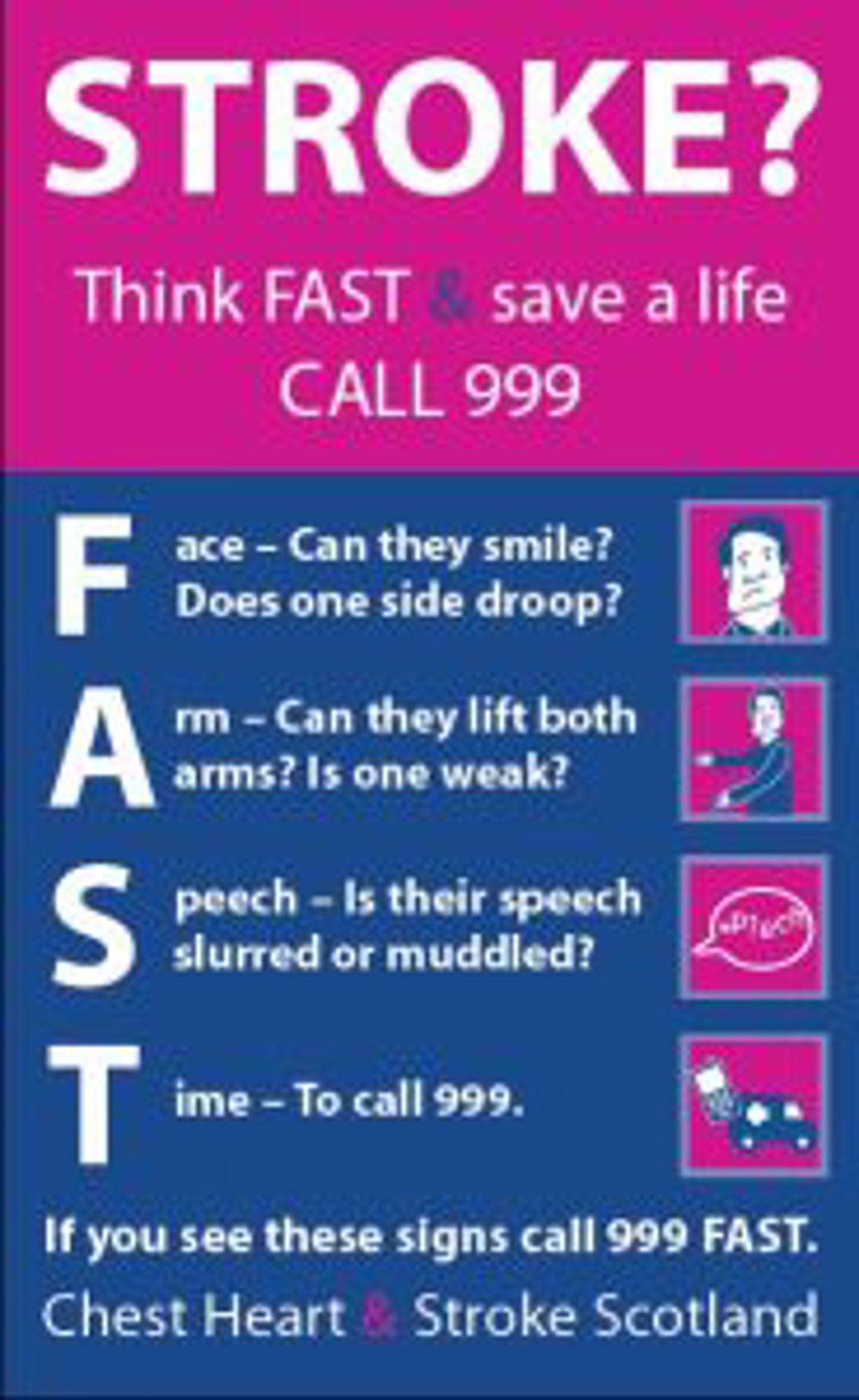
What is a Stroke?
A stroke is a serious, life-threatening medical condition that occurs when the blood supply to part of the brain is cut off. Strokes are a medical emergency and urgent treatment is essential. The sooner a person receives treatment for a stroke, the less damage is likely to happen.
Phone 999 immediately if:
- you suspect you or someone else is having a stroke
Do not drive if you suspect you’ve had a stroke or TIA (transient ischaemic attack).
The main symptoms of stroke can be remembered with the word FAST.
FAST stands for:
- Face – the face might drop on one side, the person may not be able to smile or their mouth may have dropped, and their eyelid may droop
- Arms – the person may not be able to lift both arms and keep them there because of arm weakness or numbness in one arm
- Speech – they might slur their speech or it might be garbled, or the person may not be able to talk at all despite appearing to be awake
- Time – it’s time to phone 999 immediately if you see any of these signs or symptoms
A person having a stroke might not have all of these symptoms. If you notice any of these symptoms, you should consider a person may be having a stroke.

Life after a stroke
Life after a stroke can look quite different and around half the people who have a stroke will be dependent on some form of care for help with their daily activities. There are a number of services to support those who have had a stroke in Fife. Further information can be found by using the sections below.
Hospital services
Information on stroke hospital services within Fife
Community services
Information on stroke community services in Fife



